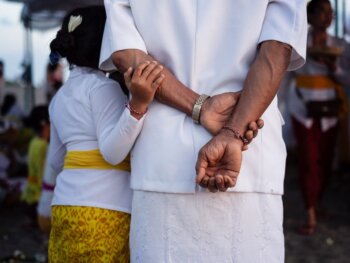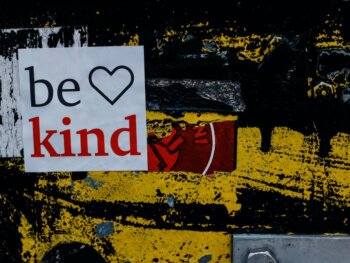Since the dismantling of Roe v. Wade by the Supreme Court of The United States at the end of June, there has been a lot of discussion on where religion plays a part in this ruling, how this ruling is being processed by women not only in America but globally, and if this is a case of one (Christian) religious ideology being imposed on to the masses. We take a closer look at how Hinduism, Islam, Sikhism, Jainism and Zoroastrianism stand when it comes to this specific healthcare issue.
Unless you’ve been living under a rock or tucked away in a cave somewhere, which may be for the best, you may have heard about the repealing of the Roe V. Wade ruling that had made abortion a constitutional right.
To learn more about Roe v. Wade and what contributed to this decision, check out what Hina P. Ansari, ANOKHI Life’s very own Editor-In-Chief had to say.
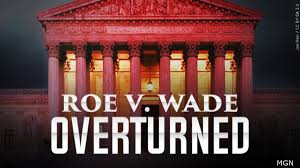
Religion v. Abortion
That said, like many people, the Roe v. Wade ruling left me feeling disappointed for women across America at the fact that women were no longer able to act autonomously about their bodies. The line between state and religion was evidently blurred by the repealing of this decision, which left me thinking about what other religions had to say about abortion, particularly for women of South Asian descent:

Islam:
Sharia Law is fairly fluid when it comes to abortion as it is the belief “…that a woman’s life should be prioritized over an unborn fetus,” notes Al Jazeera. Ultimately, it is the decision of the woman and her loved ones to make a decision that is best for her. More than that, in Islam, it is believed that a fetus does not become a “life” until approximately 40-120 days into a pregnancy when it gets its soul, explains Al Jazeera. With the Roe v. Wade ruling being tossed out the window, many Muslim Americans are stuck between a rock and a hard place as the anti-abortion stance in America conflicts with Sharia Law. To make matters worse, “many Muslim women are already being pushed away given how health inequities impeding abortion access exist and persist including due to Islamophobia, anti-Blackness, homophobia, transphobia, heteropatriarchy, Christian supremacy, etc. within the provision of health services,” highlights Al Jazeera.
Hinduism:
According to Hindu scriptures, abortion is not acceptable, other than if the mother’s life is in danger. Many people believe that having an abortion is akin “…to the killing of a priest,” while others think “…abortion [is] a worse sin than killing one’s parents [or] that a woman who aborts her child will lose her caste,” explains BBC. Moreover, Hindus believe that to have an abortion goes against the “public duty” to have children “…in order to continue the family and produce new members of society,” notes BBC. Unlike in Muslim culture, Hindus are of the mindset that the fetus has a soul from the time of conception as it is being reincarnated and is technically already a person. However, it is worth noting that these principles seem to go out the window when it comes to aborting female children in the hopes of producing a male heir. That said, Hindu Americans who are seeking abortions in the US are now in a tough position, as they are not only going against their religion, but their access to do what’s best for them has been limited. In this respect, according to Fox 5, Padma Lakshmi shared that ““people will still get abortions” [as] the Supreme Court decision “will only prevent safe, legal abortions from taking place.”
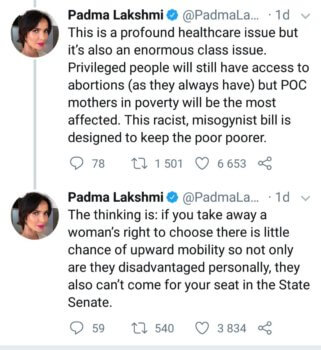
Zoroastrianism:
For those of you who may not be familiar, “Zoroastrianism is an ancient Persian religion that was the official religion of the Persian Empire from 600 BCE to 650 CE (3),” according to the Journal of Medical Ethics and History of Medicine, and shares similarities with Hinduism. In this way, Zoroastrians believe that abortion is unacceptable as it enables the “…killing [of] an innocent and intrinsically good person, and the contamination caused by the dead body,” the Journal explains. Once more, this rigid religious take when coupled with the Roe v. Wade decision makes it difficult for women to make safe and reasonable choices for themselves about their bodies, which may lead to more risky alternatives being employed.
Sikhism:
There does not seem to be a direct notation in Sikh scriptures to indicate that abortion is a sin. However, the common belief among the Sikh community is that abortion is wrong “…as it interferes in the creative work of God – who created everything and is present in every being,” explains BBC. Similar to Hinduism, Sikhs believe that the fetus is a person at the time of creation, therefore, to have an abortion would be equivalent to murder. That said, despite how abortion is viewed within their community, many Sikh celebrities, including poet Rupi Kaur took to social media to share their thoughts following the Roe v. Wade ruling. Kaur penned a poem on Facebook that captured her thoughts on the decision with the powerful caption: “they ban abortion because they think they own human life.”
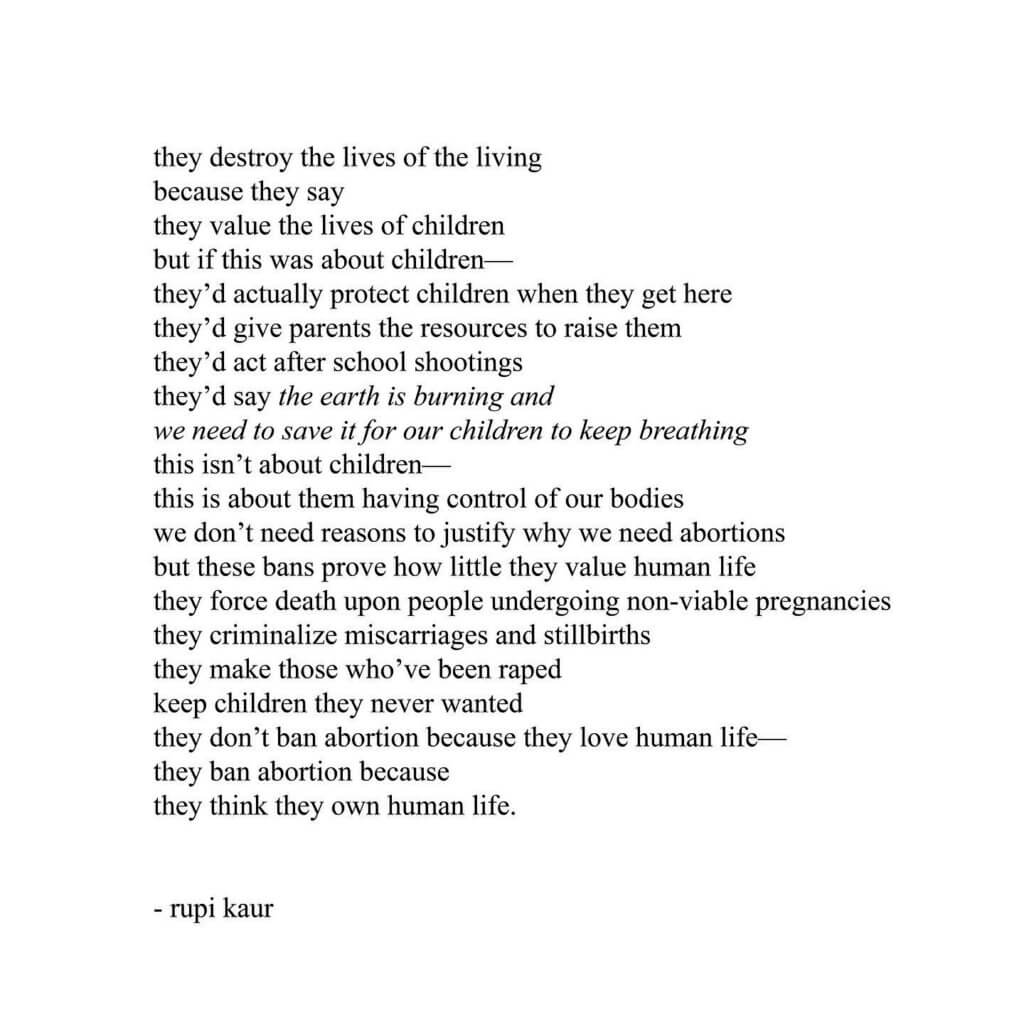
Jainism:
In Jainism, abortion is not an acceptable practice as it is seen as taking a life, since it is believed that the fetus is ‘alive’ on the day of conception. That said, MDPI (which publishes academic papers) captures the Bhaṭṭāraka, who are leaders at the Digambara Jain institutions, explains that the act of aborting a fetus is related to one’s karma. For example, MDPI states “the Bhaṭṭāraka does not condemn abortion nor does he describe social or institutional consequences for those involved. Like all actions in a karmic system, if a woman seeks an abortion, she and everyone involved will take the “penalty of karma” as all beings do for the harms they cause.” With this perspective in mind, it is already difficult for women of the Jain faith to consider abortion, but the Roe v. Wade decision makes it even harder to do what’s right on an individual basis, regardless of the karmic consequences.
What’s Next?
As demonstrated above each religion has its own take on this specific healthcare issue. However, what needs to be recognized is that regardless of religion, the right-wing beliefs of the Supreme Court should not be imposed on the masses, particularly when it has now effectively stripped women of their autonomy to choose.
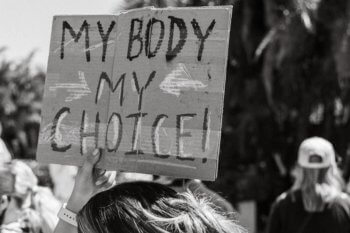
That said, with Roe v. Wade, South Asian women, among other marginalized groups, in the United States may be doubly impacted by the government’s decision to allow religion to take precedence, and ultimately govern women’s bodies. This situation is particularly concerning in the South Asian community as there are already “…historic and ongoing disparities and access to quality health care, and sexual and reproductive health information in Black and brown communities,” explains ABC News. It is common knowledge that more conversations need to happen within South Asian households to break down the stigmas around sexuality, abortion, and family planning.

In the meantime, it is disheartening to think that the lack of distinction between state and religion will result in some women potentially being stripped of the chance to seek out a safe abortion, if at all, should they need one.
Main Image Photo Credit: www.unsplash.com/Gayatri Malhotra
Devika Goberdhan | Features Editor - Fashion
Author
Devika (@goberdhan.devika) is an MA graduate who specialized in Political Science at York University. Her passion and research throughout her graduate studies pushed her to learn about and unpack hot button issues. Thus, since starting at ANOKHI in 2016, she has written extensively about many challe...











































































































